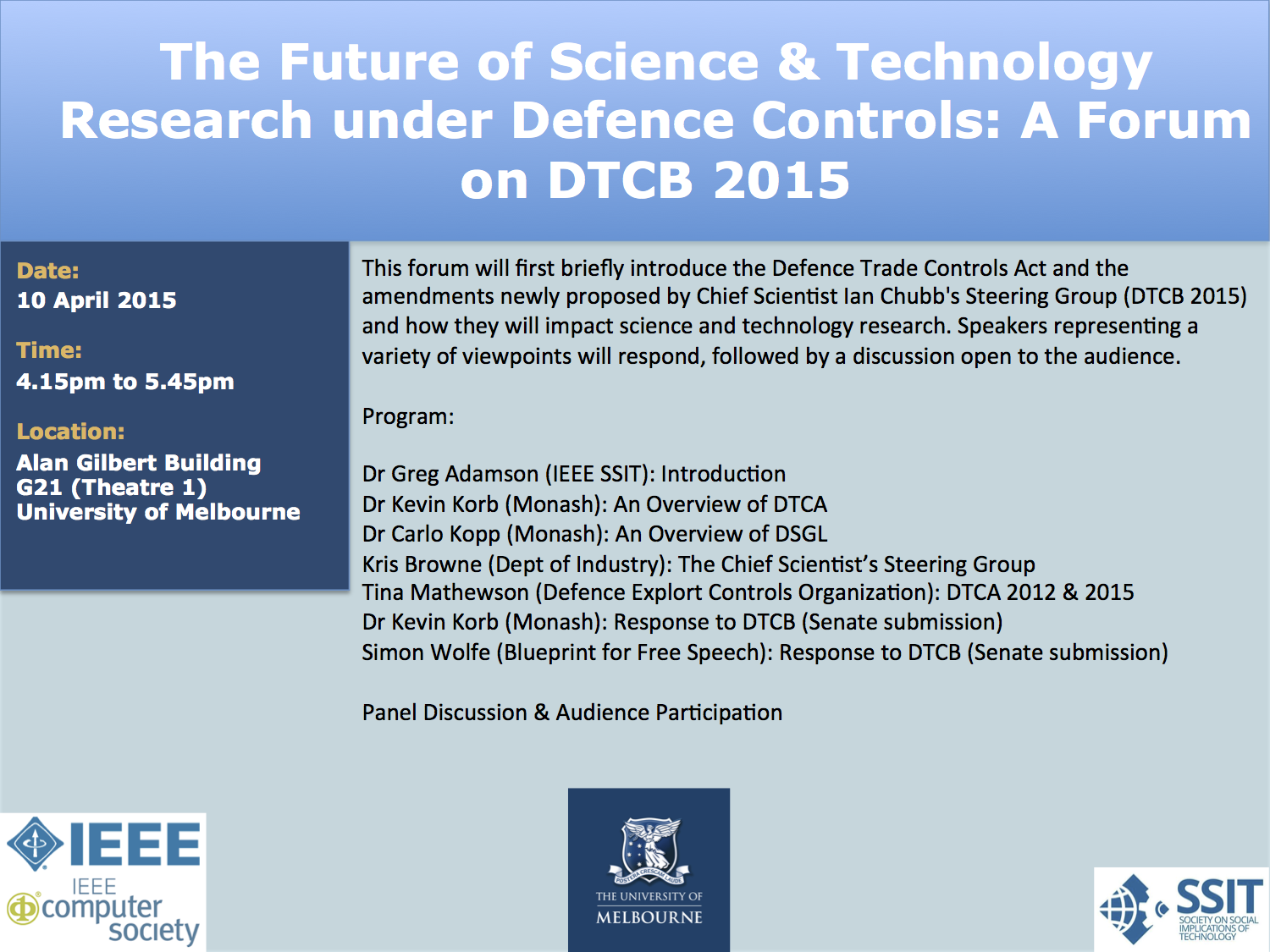The DTCA (Defence Trade Controls Act) Forum we held on 10 April at the University of Melbourne on Defence regulation of science and technology in Australia was recorded. Here are the available video links:
- Kevin Korb introduces the DTCA (Defence Trade Controls Act).
- Carlo Kopp gives an overview of the Defence Strategic Goods List, which defines "dual-use" research that will come under the control of the Department of Defence.
- Kris Browne (Department of Industry and Science) and Tina Mathewson (Department of Defence) give the government point of view on DTCA.
- Kevin Korb reviews his submission to parliament on DTCB 2015 (corrected).
- An open discussion of DTCA by speakers and audience.
- An interview of Kevin Korb on the DTCA.
- A youtube playlist, including all of the above.
- The Rational Future has a youtube video channel which includes the above videos and others.


